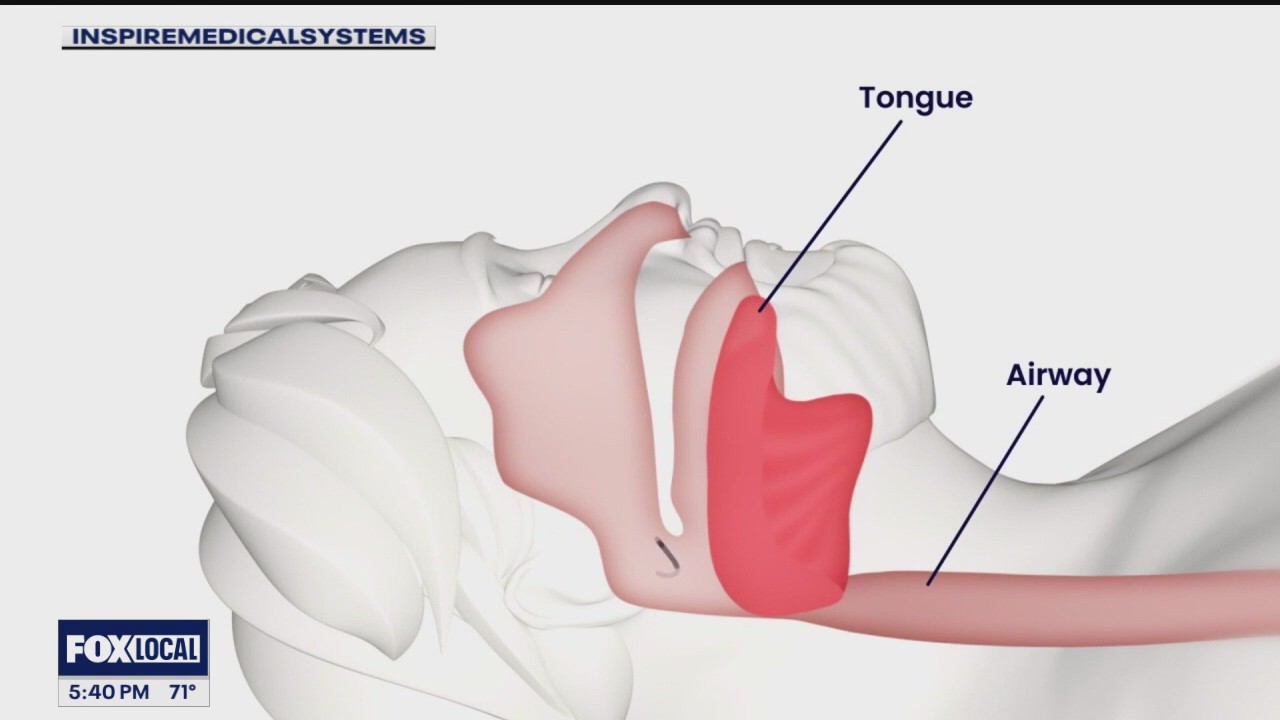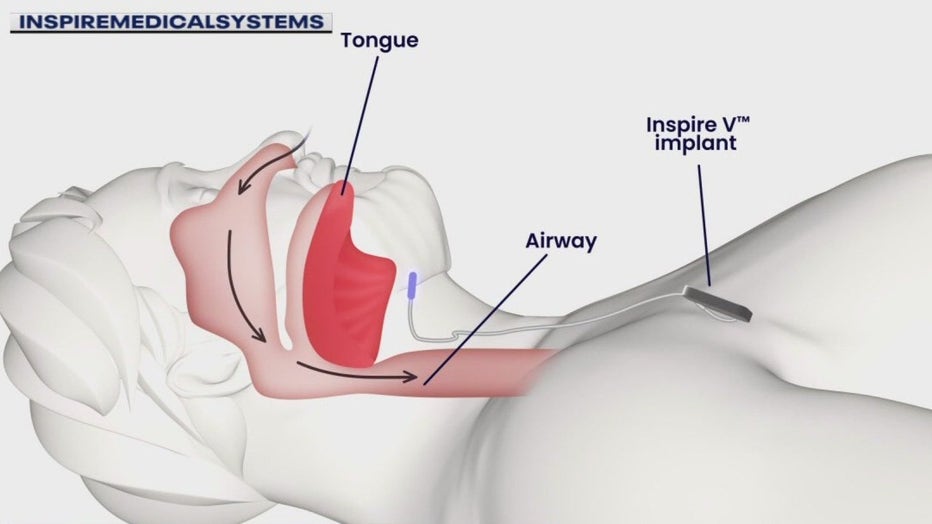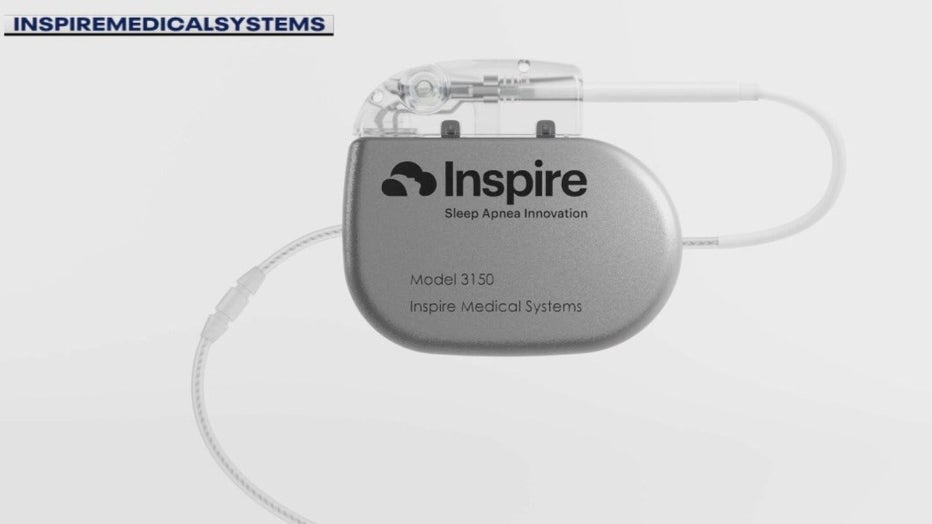Sleep apnea implant can solve night time rest instead of a CPAP mask

There are many ways to treat sleep apnea - including by implant
The Inspire implant is one of the newer ways to treat sleep apnea for those who can't or don't want to wear a CPAP mask.
FOX 2 - We know that sleep is so important - so what happens when your breathing stops and restarts mid-sleep during the night?
The backstory:
It's called sleep apnea and it is really important to treat, and there are several options including- an implant. which may scare some but not Vickie Gee.
"Don't be scared, it's the best thing," she said.
Gee is 81 now, but eight years ago as a caretaker to a disabled husband and working as a school bus driver, she was struggling.
"I was at the point where I wasn't getting sleep something's got to give," she said. "I can't do this, I can't drive those kids and I can't keep eyes open."
Vickie Gee was diagnosed with sleep apnea.
Trinity Health ear, nose, and throat Dr. Paul Hoff explains that with sleep apnea, for various reasons, your oxygen is being cut off.

"Your tongue falls back, your tonsils fall back, just the soft tissue in the back of the throat collapses and it blocks the airway," he said.
The top treatment for sleep apnea is a continuous positive airway pressure - or CPAP machine. That keeps the air flowing, but the CPAP was giving Gee sinus infections.
That's when she decided on the Inspire Implant.
"It's right under my skin right here," she said.
A small device implanted in the chest sends subtle impulses to keep your tongue out of the way - so you can breathe and sleep all night.
"It stimulates movement of your tongue, linked to the respiratory cycle," Hoff said. "So when you Inspire breathe in, that's when your airway collapses and it moves your tongue forward then, so there's a wire that goes up to the nerve that moves your tongue.
"It's a small incision under the chin, and every time you breathe in after you are asleep, your tongue will move forward and opens the airway."

If you ignore sleep apnea it can lead to not just daytime drowsiness, but also can impact your cardiovascular and cognitive function.
Dr. Hoff says there are treatments you might not realize, ranging from sleep position to surgery.
"That can be anything from the removal of tonsils ... adults come in with huge tonsils," he said. "There are other soft tissue surgeries. There's jaw surgery, which is kind of the last thing.
"And then, since 2014, there's been neurostimulation, which is Inspire."
Gee says while initially she was scared, the Inspire implant is life-changing.
"I'm rested, I wake up rested and calmer," she said.
Dr. Hoff says that wearing a sleep tracking device might alert you to a lot of sleep disruptions, so that can be a first sign that you need a sleep study to see if you do have sleep apnea.
Mouth tape can actually help you keep the jaw forward and therefore keep your tongue forward - which makes it a possible treatment for mild sleep apnea.
The Source: This report is based on an interview with Dr. Paul Hoff

